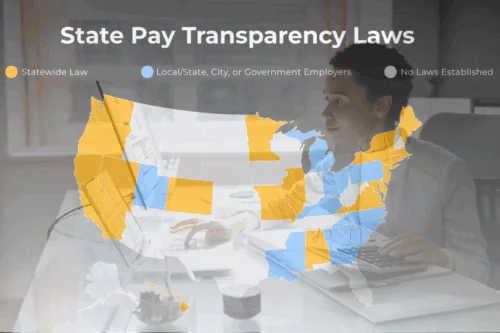Welcome to your essential guide on understanding and addressing unfair treatment at work. Whether you are beginning your career journey or looking to navigate the challenges of the workplace better, this guide provides valuable insights and practical steps to identify, confront, and resolve instances of unfair treatment. Unfair treatment can arise from various factors, and understanding your rights and responsibilities is the key to promoting a positive work environment. Let’s explore how to tackle these issues effectively, ensuring a fair and equitable workplace for yourself and your colleagues.
Understanding Unfair Treatment at Work
Unfair treatment at work can take various forms and affect numerous employees across different industries. Recognizing these situations is the first step toward addressing them effectively.
What Constitutes Unfair Treatment?
Unfair treatment refers to actions that discriminate against, isolate, or unfairly disadvantage an employee. Such treatment can stem from biases related to race, gender, age, religion, disability, or other protected characteristics. It also includes inadequate management responses to employees’ concerns.
Examples of Unfair Treatment
- Discrimination: Being overlooked for promotions or assignments due to personal characteristics rather than job performance.
- Harassment: Facing unwelcome comments or actions that create a hostile work environment. This could include anything from jokes about personal attributes to more overt threats or demeaning acts.
- Retaliation: Suffering negative job-related consequences for reporting workplace issues or participating in an investigation.
Detecting unfair treatment involves being aware of both obvious and subtle signs. Employees should also know their rights and employers’ responsibilities to maintain a fair workplace. Understanding the legal framework surrounding employment discrimination is greatly beneficial.
Common Forms of Unfair Treatment
While the notion of unfair treatment at work spans a broad range of actions, certain forms are reported more frequently than others. Identifying these allows victims and organizations to better address and prevent them.
Workplace Bullying
Bullying goes beyond rudeness or occasional conflict. It involves persistent actions intended to belittle, intimidate, or humiliate someone. Examples include:
- Consistent verbal abuse or making derogatory remarks.
- Deliberately excluding someone from meetings or relevant communications.
- Sabotaging someone’s work or their ability to perform.
Wage Discrimination
Another prevalent form of unfair treatment is wage discrimination, in which employees doing substantially similar work are paid differently based on an aspect of their identity, such as gender, race, or age. This challenges the principle of equal pay for equal work, violating both moral standards and legal requirements.
Unfair Job Assignments
Some employees might find themselves constantly assigned tasks that are less desirable or that do not fully utilize their skills, often based on the supervisor’s personal biases. This limits their career development and impacts their motivation and job satisfaction.
Understanding and awareness of these standard forms is vital in cultivating an inclusive workplace. Organizations and employees can gain further insights from resources like fair employment practices on the Department of Labor (DOL) website.
Legal Framework Surrounding Unfair Treatment
Various laws protect employees from unfair treatment at work. Understanding these laws helps employees recognize their rights and the steps they can take if they violate them.
Federal Laws
Several federal statutes provide the backbone for combating unfair treatment:
- The Civil Rights Act of 1964 (Specifically Title VII): Prohibits discrimination based on race, color, religion, sex, or national origin.
- The Americans with Disabilities Act (ADA): Protects individuals with disabilities from discrimination in the workplace.
- The Age Discrimination in Employment Act (ADEA): Ensures protection for workers aged 40 and above.
State and Local Laws
Beyond federal laws, many states and localities have their laws that may offer additional protection against unfair treatment at work. These laws often cover more categories or provide more robust enforcement mechanisms.
Reporting and Compliance
Employees experiencing unfair treatment can file a complaint with the EEOC. Furthermore, many companies have procedures for internally reporting such issues, often detailed in the employee handbook.
Employees can seek advice from legal professionals specializing in employment law for more details on their legal rights and how to proceed with complaints. It’s crucial for employees to be informed about such resources to address unfair treatment at work effectively.
Employee Rights and Employer Responsibilities
Addressing unfair treatment at work isn’t just a matter of legal compliance—it’s also about enabling a respectful and inclusive workplace culture. Both employees and employers play crucial roles in this process.
Employee Rights
Every employee has the right to:
- Work in an environment free from discrimination and harassment.
- Report incidents of unfair treatment without fear of retaliation.
- Request reasonable accommodations, if necessary, to perform their job duties.
Employer Responsibilities
Employers must:
- Ensure compliance with all relevant employment laws.
- Provide training and resources to prevent discrimination and harassment.
- Investigate any complaints of unfair treatment promptly and thoroughly.
- Take appropriate action to rectify situations involving unfair treatment.
Effective communication is vital, and having clear policies that are uniformly enforced can significantly reduce incidents of unfair treatment. Additionally, offering regular training sessions can help educate employees and management on recognizing and preventing workplace discrimination. For guidelines on setting up such policies and training, employers can visit resources like the Society for Human Resource Management (SHRM) and ensure they are up-to-date on best practices.
Steps to Address Unfair Treatment Internally
When facing unfair treatment at work, knowing the steps for addressing the issue within your organization is crucial.
Document Everything
Keep detailed records of all incidents, including dates, times, locations, and any witnesses. Documentation can provide essential evidence if the issue escalates or requires a formal investigation.
Use Internal Channels
Most organizations have procedures for reporting grievances:
- Start by consulting your employee handbook or HR guidelines.
- File a formal complaint as per your company’s procedure.
- Seek informal resolution through mediation if possible.
Communication with Management
Directly communicate with your supervisor or HR department. Explain the situation clearly and request their assistance in resolving the issue. If your immediate supervisor is part of the problem, escalate the matter to the next higher management level.
For employees unsure about starting the conversation or those needing guidance on best practices in workplace communication, resources like the Occupational Safety and Health Administration (OSHA) offer valuable advice. Additionally, understanding techniques for effective undocumented verbal complaints can be crucial.
When to Seek External Help
Sometimes, internal avenues may not adequately address unfair treatment at work, or you might face retaliation for raising concerns. In such cases, seeking external assistance becomes necessary.
Contacting Government Agencies
If internal processes fail or are not viable, you may need to contact relevant government bodies:
- The Equal Employment Opportunity Commission (EEOC) handles discrimination complaints.
- The Department of Labor (DOL) offers guidance on wages and hours worked.
Seeking Legal Advice
Consulting with an employment lawyer can guide you to your specific situation. A lawyer can offer:
- Legal options are based on the details of your case.
- Support if you decide to take legal action against your employer.
For those uncertain about when to reach out for external help, visiting the EEOC’s guidance on filing a complaint can be highly instructive. They detail when and how to bring your concern to their attention effectively. Additionally, understanding your rights is crucial, so consider reviewing resources the ACLU provides on workers’ rights for more comprehensive insights.
Support Networks and Resources
Facing unfair treatment at work can be isolating, but various support networks and resources are available to help employees cope and find solutions.
Professional Organizations
Many professional organizations offer support and advice for dealing with workplace issues:
- Industry-specific associations often have resources and forums to discuss and address unfair treatment.
- Unions can provide legal support and negotiation power if you are a member.
Online Forums and Communities
Online platforms can be valuable for finding others who have faced similar issues. These communities can provide emotional support and practical advice:
- Websites like Reddit and LinkedIn have active groups where you can share experiences and get feedback.
- Specialized online forums for workplace issues can also offer anonymity and direct advice from experts.
Understanding that you’re not alone can significantly impact your ability to deal with unfair treatment at work. For those looking to connect with others or find additional guidance, exploring the benefits of networking in career advancement can also be advantageous. Moreover, further educational resources can be found on sites like the National Employment Law Project, which provides information and advocacy on workers’ rights issues.
FAQs
Addressing common questions can clarify doubts and provide straightforward guidance on dealing with unfair treatment at work.
What are the signs of unfair treatment at work?
Signs include consistent targeting in critique unrelated to job performance, exclusion from meetings, or denial of opportunities given to others under similar conditions.
What should I do first if I feel unfairly treated at work?
Start by documenting the incidents with as much detail as possible. Then, review your company’s grievance procedure and report the behavior.
Can I talk to a coworker about the unfair treatment I’m experiencing?
Yes, discussing your experiences with trusted coworkers can provide support and insight. However, ensure conversations are discreet and professional.
Will I lose my job if I speak up about unfair treatment?
Employers are generally prohibited from retaliating against employees who file complaints or assert their rights, including legal actions against unfair treatment.
How long do I have to file a complaint regarding unfair treatment?
The time limit can vary depending on the law or policy applied. Generally, entities like the EEOC have specific time frames for filing a complaint.
Can I file a complaint about unfair treatment without proof?
Yes, you can file a complaint. However, having documented evidence can strengthen your case and help during investigations.
What if the unfair treatment comes from a supervisor?
Report the behavior to HR or another higher authority within your organization. Avoid confronting the supervisor alone.
Is it necessary to hire a lawyer to handle unfair treatment at work?
Not initially, but consulting with a lawyer can be beneficial if the internal resolution isn’t practical or if legal action might be required.
How can I prevent retaliation after reporting?
Most companies have policies against retaliation. Document any retaliatory behavior and report it immediately to HR or your supervisor.
Finally, consulting legal experts or visiting official websites dedicated to labor rights can be highly beneficial for targeted advice and detailed procedural guides.
Conclusion
Understanding and addressing unfair workplace treatment is crucial for maintaining a healthy, respectful, and productive workplace. By recognizing the signs, utilizing internal resources, and seeking external help, employees can protect their rights and contribute to a more inclusive work environment. Employers also have a pivotal role in upholding fairness by adhering to legal standards and fostering a culture that discourages discriminatory practices.
If you’re seeking a workplace that values diversity and inclusive practices, join Diversity Employment and upload your resume today! You’ll find a community that supports your career goals and stands against unfair treatment at work. Join us today to start your diversity job search in a supportive and equitable work environment!




